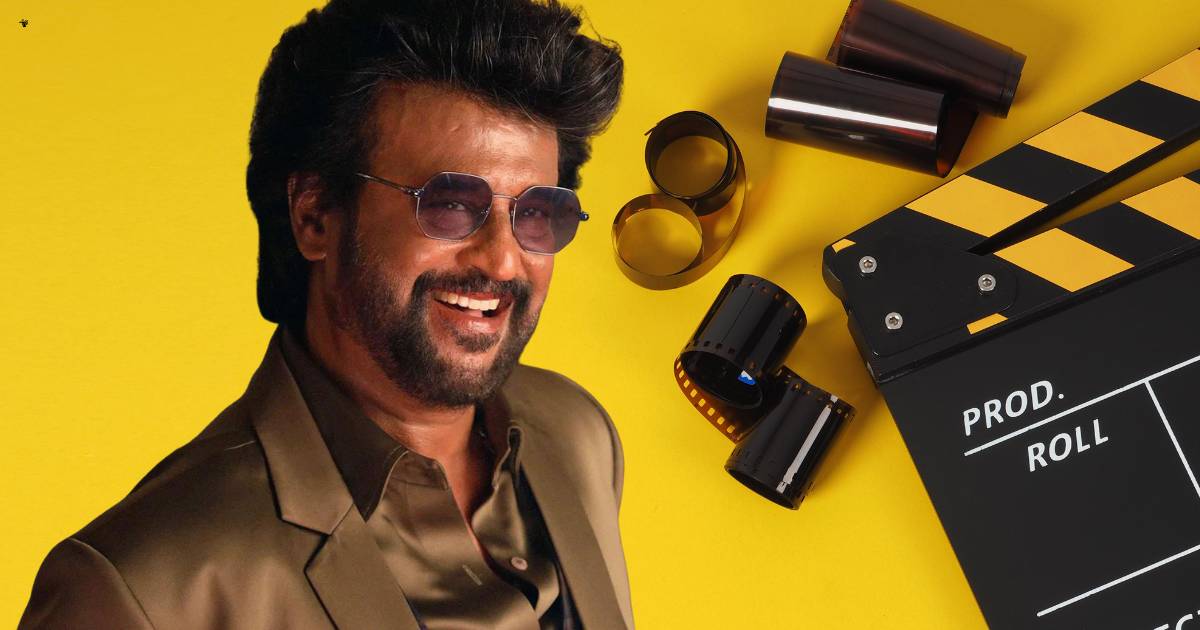When you think of superstardom in Indian cinema, one name instantly comes to mind – Rajinikanth. Worshipped as a demigod by his fans, Rajinikanth is not just a superstar but a cultural phenomenon whose journey from a bus conductor in Bangalore to becoming one of Asia’s highest-paid actors is nothing short of legendary.

Even today, his movies run house-full across India and even internationally, proving that the “Thalaivar” magic never fades.
Early Life – From Conductor to Superstar
Rajinikanth was born as Shivaji Rao Gaekwad on December 12, 1949, in a Marathi family in Bangalore, Karnataka. His father, Ramoji Rao Gaekwad, worked as a police constable, and his mother Jijabai was a homemaker.
Life was not easy for young Shivaji. After his mother’s death, financial struggles forced him to take up odd jobs. Eventually, he worked as a bus conductor in Bangalore Transport Service. His passengers often noticed his unique style while issuing tickets, blowing whistles, and his charismatic body language – something that hinted at his future stardom.
But Rajinikanth always had bigger dreams. He wanted to act. With determination, he moved to Chennai and enrolled in the Madras Film Institute, where his raw talent and screen presence caught the eye of legendary filmmaker K. Balachander.
The Breakthrough – Apoorva Raagangal
Rajinikanth’s official debut came in Katha Sangama (1976), but his career truly took off with Apoorva Raagangal (1975), directed by K. Balachander. Playing a small but impactful role, Rajini’s style and screen presence were impossible to ignore.
In the late 70s, he became known for playing villains and anti-heroes. His negative roles in movies like Moondru Mudichu (1976), Avargal (1977), and Pathinaru Vayathinile (1977) made him a fan favorite. The audience loved to hate him, and soon, filmmakers realized his potential as a leading man.
By Bhairavi (1978), Rajinikanth had transformed into a full-fledged hero, securing his place in Tamil cinema.
The Rise of the Superstar
The late 70s and 80s were golden years for Rajinikanth. His performances in Mullum Malarum (1978), Johnny (1980), and Aarilirunthu Arubathu Varai (1979) showcased his versatility in drama and emotion.
But it was action that cemented his superstardom. With his trademark style of flipping cigarettes, adjusting sunglasses, and delivering punch dialogues, Rajini became the ultimate mass hero. Audiences flocked to theaters to watch him defeat villains with unmatched swagger.
His 100th film, Sri Raghavendra (1985), was a spiritual milestone in his career. By the 90s, Rajinikanth was no longer just a Tamil star – he had become a pan-Indian icon, with his films dubbed in multiple languages and running successfully across the country.
Rajinikanth in Bollywood & Beyond
While his dominance in Tamil cinema remained unshakable, Rajini also made a mark in Bollywood with films like Andhaa Kanoon (1983), where he starred alongside Amitabh Bachchan. He appeared in several Hindi projects during the 80s and 90s, though his heart always remained in Tamil cinema.
Interestingly, Rajinikanth even gained popularity in Japan, thanks to the success of his film Muthu (1995), which was released as “Muthu: The Dancing Maharaja.” Japanese fans still celebrate him, making him one of the very few Indian actors with a fanbase in East Asia.
Blockbusters & Mega Success
Rajinikanth’s career saw some massive milestones:
-
Baashha (1995) – cemented his image as the ultimate action superstar.
-
Padayappa (1999) – became one of the highest-grossing Tamil films of its time.
-
Chandramukhi (2005) – ran for over 800 days in theaters, making history.
-
Sivaji (2007) – directed by Shankar, became India’s most expensive film at the time.
-
Enthiran (2010) – a sci-fi epic where Rajini played dual roles, breaking box office records.
-
Kabali (2016) – showcased him in a gangster avatar, loved by fans.
-
2.0 (2018) – India’s most expensive film then, alongside Akshay Kumar.
Even at 70+, Rajinikanth continues to deliver hits, proving age is just a number for Thalaivar.
Awards & Recognition
Rajinikanth’s contributions to cinema have been recognized with India’s top honors:
-
Padma Bhushan (2000)
-
Padma Vibhushan (2016)
-
Centenary Award for Indian Film Personality of the Year (2014) at IFFI
Family & Personal Life

Rajinikanth married Latha Rangachari on February 26, 1981. She is an educationist and runs the Ashram School in Chennai. The couple has two daughters:
-
Aishwarya Rajinikanth – a director and playback singer, married to actor Dhanush.
-
Soundarya Rajinikanth Vishagan – a filmmaker and graphic designer.
Despite being a superstar, Rajini is known for his simple lifestyle, humility, and spiritual beliefs. Off-screen, he prefers meditation, spending time at his Raghavendra temple visits, and leading a low-profile personal life.
Net Worth & Lifestyle
Rajinikanth is one of the richest actors in India. His net worth is estimated to be around ₹430–500 crore (USD 55–65 million).
-
He charges ₹50–60 crore per film, making him one of Asia’s highest-paid actors.
-
Owns luxurious houses in Chennai, Raghavendra Nagar, and Pune.
-
Despite wealth, he lives simply – often spotted in plain white kurta-pajama, unlike the flashy lifestyles of other stars.
For his blockbuster Baba (2002), Rajinikanth personally funded the film with over ₹40 crores – showing his commitment to cinema.
Interesting Facts about Rajinikanth
-
His mother tongue is Marathi, but he became Tamil cinema’s biggest star.
-
He worked with legends like Amitabh Bachchan and Kamal Haasan but carved his unique identity.
-
The Black Eyed Peas sampled his song “Unnakum Ennakum” in their hit track “Elephunk.”
-
His fans celebrate his movie releases like festivals – bursting crackers, pouring milk on his cut-outs, and performing rituals.
-
He is one of the few Indian actors to be loved in Japan.
Legacy of Thalaivar
Rajinikanth is more than an actor – he is a symbol of hope, style, and simplicity. From a bus conductor to a superstar worshipped by millions, his story inspires generations.
Even after nearly five decades, Rajinikanth continues to rule cinema, proving why he truly deserves the title of “Superstar Rajinikanth.”